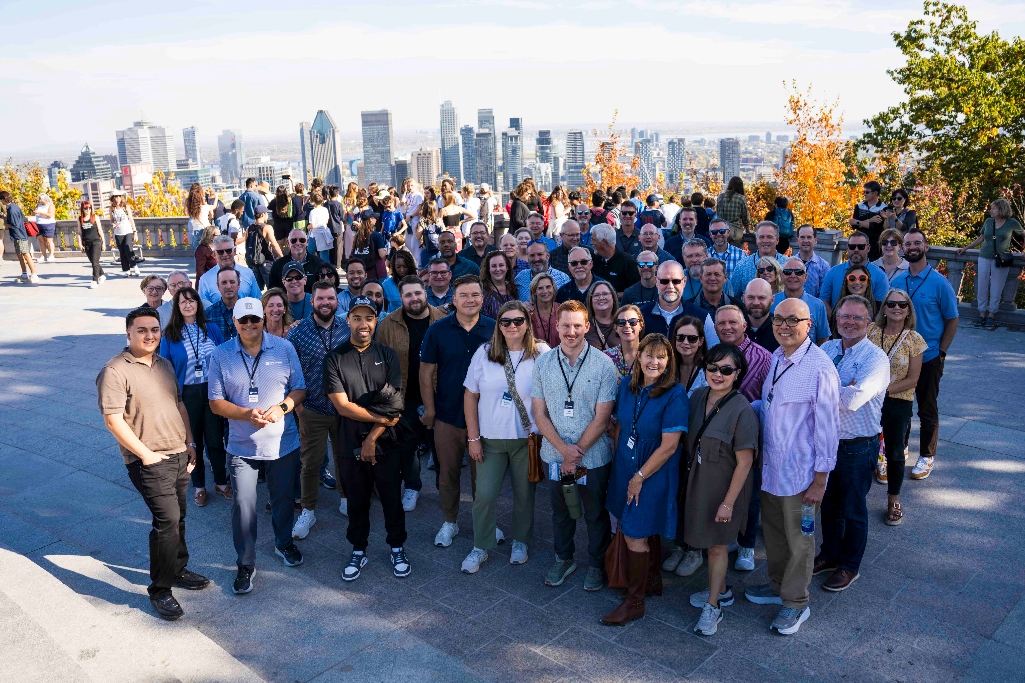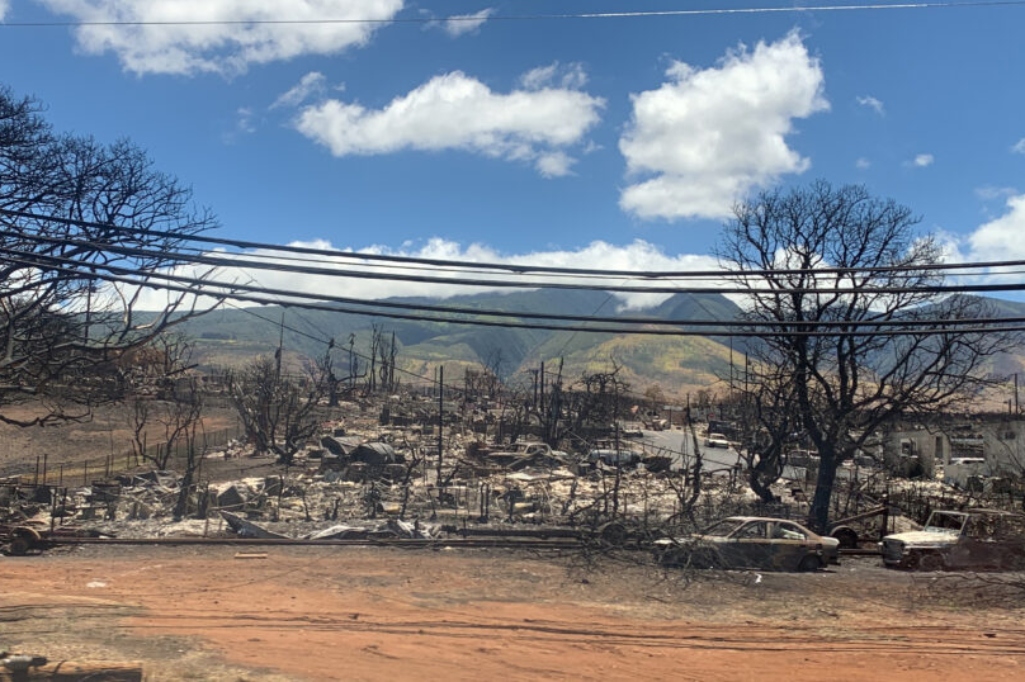
North American Mission Board trustees stand together at Mount Royal Park, with the skyline of Montreal stretching behind them. During their Oct. 6-7 meetings, trustees visited with church planters and learned of Montreal’s difficult spiritual landscape.
MONTREAL — North American Mission Board (NAMB) trustees, meeting in Montreal on Oct. 6-7, toured the city, learned about the ministry challenges associated with reaching Canada and conducted business in support of NAMB’s ministries.
After visiting with three local church-planting missionaries Monday, a trip to nearby Mount Royal Park provided a sweeping view of Montreal’s skyline with the St. Lawrence River in the background. The deep spiritual need, though, overshadowed the beauty as trustees learned of Montreal’s unique challenges for church planters serving in a city marked by secularism and religious disaffiliation.
Once, more than 80% of residents identified as Catholic. Then in the 1960s during a societal shift known as “The Quiet Revolution,” millions in the province of Quebec, where Montreal is located, left the church.
Today, fewer than 10% attend weekly mass. Fewer still — only 1% of residents — identify as evangelical Christians.
A deep distrust of organized religion remains. Local church planters describe Montreal residents as spiritual, but mostly uninterested in attending church.
At a Monday night dinner, Jeff Christopherson welcomed trustees and local missionaries. Christopherson serves as executive director of the Canadian National Baptist Convention, NAMB’s church-planting partner in the nation of Canada.
Noting that in the year 2010, NAMB’s total budget for Canada was $300,000, Christopherson told NAMB President Kevin Ezell, “Thanks to your leadership and willingness to go to the mat, we are at 15 times that now. It’s humbling to recognize that there are a lot of people sacrificing, a lot of people doing without so that this could happen here.”
David Pothier, who planted La Chapelle church in 2013, gave trustees a sense of the challenges churches face in Montreal. Most neighborhoods have laws preventing new religious zonings, making it next to impossible to start a new church unless that area is already zoned for religious gatherings.
“So for churches to find a place to meet is a big challenge,” Pothier said. “Especially if you have more than 200 people attending. For us, we were meeting in a school, and last November the government of Quebec kicked out all the churches that were meeting in schools. We had notice at 5 p.m. on a Friday night that said your contract is done, don’t come back to the school. That was Nov. 22, and it took four months to find another place.”
Pothier outlined several other proposed laws the government is currently considering. One would ban prayer in public spaces; another would eliminate tax deductions for tithes to churches; still another would require churches to pay taxes on their buildings; and another would remove the non-profit status of organizations that adhere to a pro-life position on the issue of abortion.
“Despite everything I said, something is going on right now,” Pothier sad. “We have a movement of church planting right now.”
Montreal has seen more than 70 church plants since 2008 and activity continues to grow.
“Despite everything, here in Quebec,” Pothier said, “I believe we are on the verge of the greatest revival we have ever seen here in Quebec, but at the same time we are on the verge of the greatest persecution we have seen here in Quebec. But nothing will stop the kingdom of God, and thank you for being part of it.”
During their public meeting on Tuesday, trustees voted on several items and received several reports, which included:
- Approving a 2025-2026 operating budget of $148 million, $1 million more than last year’s.
- Voting to approve Donna Gardner as NAMB’s chief financial officer. Carlos Ferrer, who served in that role prior to Gardner, will continue as chief operating officer.
- Hearing a report from Tommy Mitchell, who pastors Agricola Baptist Church in Lucedale, Miss. Mithcell chairs NAMB’s Chaplains Commission and shared about 30 endorsements for new Southern Baptist chaplains. Mitchell said in the last year there has been an 11% increase in chaplain endorsements and an 85% increase in the number of chaplain candidates.
In his address to trustees, Ezell said, “What we are doing is no small thing. Can you believe we get to do this? God allows us to be a small part of all this. Thousands of churches started.”
Ezell challenged leaders to live with a faith that expects the unexplainable, trusting in God alone. “We have to expect God to do things only He can do, which means we won’t always be able to explain them,” he said.
He emphasized obedience to God over outcomes: “Our job is obedience. His job is the results.” Ezell added that confidence should come from God’s sovereign hand, not from circumstances.
Reflecting on the rebuilding of the temple in the book of Ezra, Ezell pointed out that the people began with worship, not work. “Worship strengthens your courage and keeps you focused on God’s power, not your enemy’s pressure.”
Opposition, he said, is a sign you’re building something that matters.
Ezell told a story about Cuba under Fidel Castro. Though churches were suppressed, they adapted — multiplying house churches every time the regime imposed lower attendance limits.
“God started a church-planting movement in Cuba and used a communist leader to do it,” a local pastor had told Ezell. “That’s something only God could do.”
In closing, Ezell reminded listeners: “God is faithful to the finish.”
Earlier in the day, trustees expressed appreciation for Ezell, noting the recent 15-year anniversary of his start as NAMB president in 2010.


